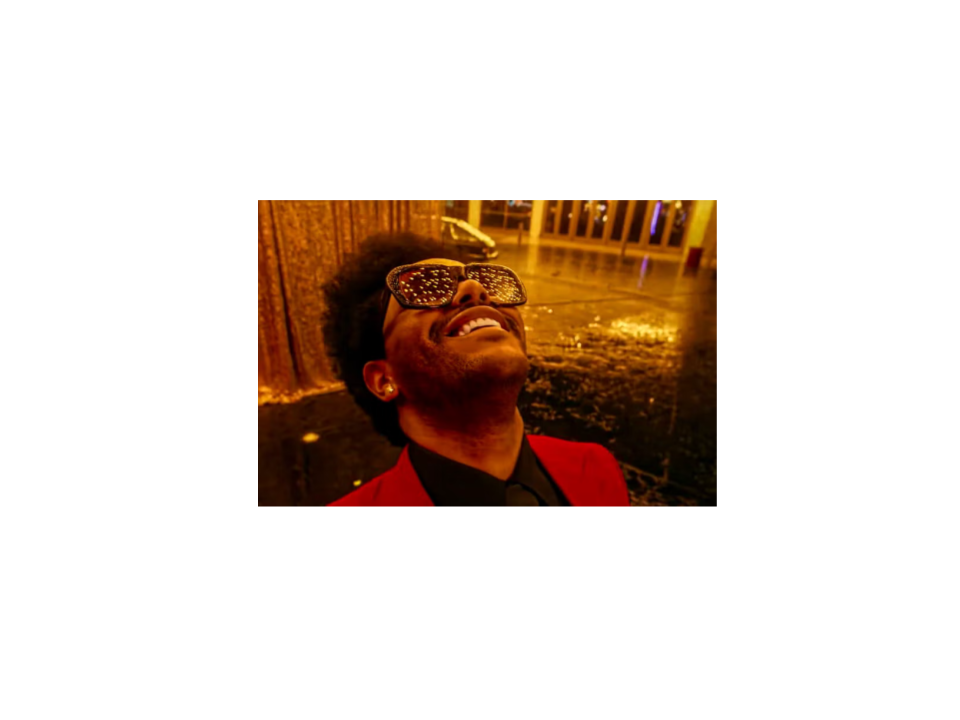By: Carissa B.
Abel Tesfaye, publicly known as The Weeknd, is not one to shy away from a controversial statement when it comes to his art or persona. Abel is a singer, producer, actor, who is most known for his R&B/Rap/Pop music. His most famous and notable work, “The Hills” and “Heartless” even includes some polarizing remarks, such as, “I just fucked two b*tches ‘fore I saw you” and “never need a b*tch, I’m what a b*tch need”. With the clear usage of the derogatory language, when asked, he has said that his music is a character. It is hard to tell how far he is willing to go for this “character” and if it is just an excuse for his scandalous words. In an interview with Esquire in 2020 he states, “It’s definitely a character. When you hear some of the drastic stuff, you can tell. I mean, that’s why it’s tricky, because it is me singing the words; it is my writing. It’s like you want people to feel a certain way. You want them to feel angry. You want them to feel sad. You want them to feel. It’s never, like, my intent to offend anybody”. The question is, should a male artist have the right to decide whether their character is open to criticism? The one thing Abel has always talked about is his self awareness, but just because you are self aware doesn’t eliminate the words being said. Art is a form of expression, and many types of artists have a different image they play up in their work, but the line between made-up and real is blurry when it comes to The Weeknd.
In addition to misogyny, his work also has themes of drug glamorization. He has been very outspoken about his issues with sobriety and has never shied away from the topic in his songs. With lyrics such as, “My doctor told me to stop, and he gave me something to pop, and I mix it up with some Adderalls and I wait to get to the top, and I mix it up with some alcohol and I pour it up in a shot” from his song Kiss Land, and “Gone from codeine, ‘methazine, lean got me feelin’ kinda weak, and it’s hard to breathe” from his song Gone. These lyrics describe in detail the intensity of his drug usage, and with the imagery of the albums, it comes off as romanticization. Given that 54% of Abel’s audience consists of Gen Z, this might encourage his young listeners to experiment with hard drugs because their favorite artist is doing so. Many impressional teens look up to him, and might view these actions as “cool”, causing extremely dangerous situations. Again, if this is just part of his character, is this actually harming individuals, and should he be held accountable for the potential damage it could bring?
His most recent controversy has been his involvement in the new HBO show titled The Idol, starring himself and Lily-Rose Depp, directed by Sam Levinson. This movie is about a young female popstar, who is going through fame in Hollywood while trying to deal with her career and the recent death of her mother. It has been described as “misogynistic, drug glamorization, trauma porn, and a rape fantasy” does this sound familiar? The show mocks mental health and consent, and the main writers of the show were Abel and Sam. After receiving backlash for these controversial scenes from Rolling Stone, The Weeknd went onto X (formerly known as Twitter) and posted a video from the show mocking Rollingstone, calling the magazine “irrelevant”.
In the credits of this show, he chose to use his real full name, Abel Tesfaye, also changing his name on Twitter and Instagram. It seems as though he wants to get away from his persona “The Weeknd” but he still chooses to use the same vulgar themes. If this project is what comes in the free time of Abel, is his music really a “character”, or is this who he really is?
Questions that come to mind are, if not The Weeknds, whose fantasy is this? Why do we still enjoy this? We live in a society that brings attention to the most jolting statements, out of shock value, therefore making these creators like Abel, more popular and wealthy. Pushing the boundaries is seen as brave, even when the content is fetishization and exploitation of women. He has had 17 top 10 hits, 113 million digital singles sold, and 18.5 million album units sold. His methods are clearly making him successful, so why should he stop this objectification of women if all it seems to do is push him further up the charts? This topic doesn’t have a clear solution and an article from Miriam Kent by the medium shares, “So I also think it’s a bit more complicated than needing to reconcile our feminist selves with our misogynistic pleasures, as Katherine Burks argued in a piece for The Lala earlier this year, since this depends on the idea that something can be concretely one thing or the other. We live in convoluted times defined by feminisms which are multifaceted and shifting, which by extension suggests that things that are considered not feminist follow similar patterns”(Kent 2015).
Possibly, the best answer is to put limits on how far the artist can take the roleplaying. His work has brought up important conversations about toxic masculinity, and destructive glamorization of women oppression in the media. He has made no changes to the messages in his music, even after backlash, which is something to be concerned about. Holding people accountable isn’t going to completely end the hatred against women. However, bringing attention to the ways society celebrates harmful themes may eventually lead to the decline of these messages from artists with big platforms and impact, such as The Weeknd.
